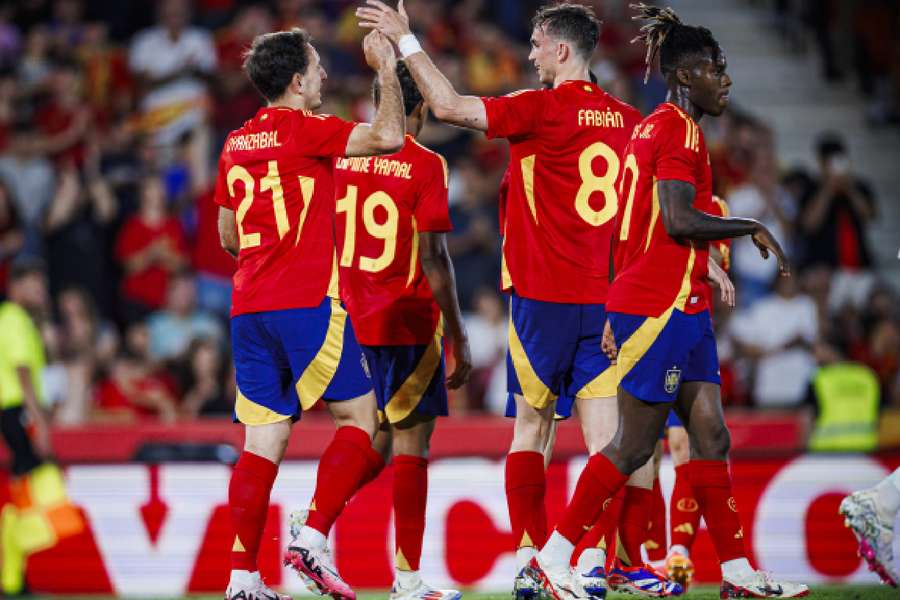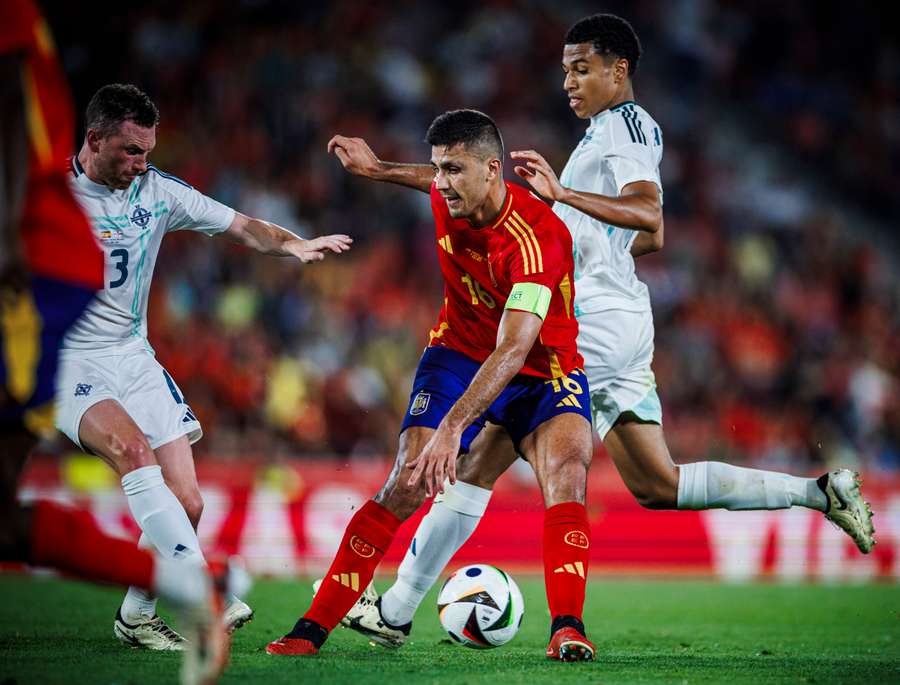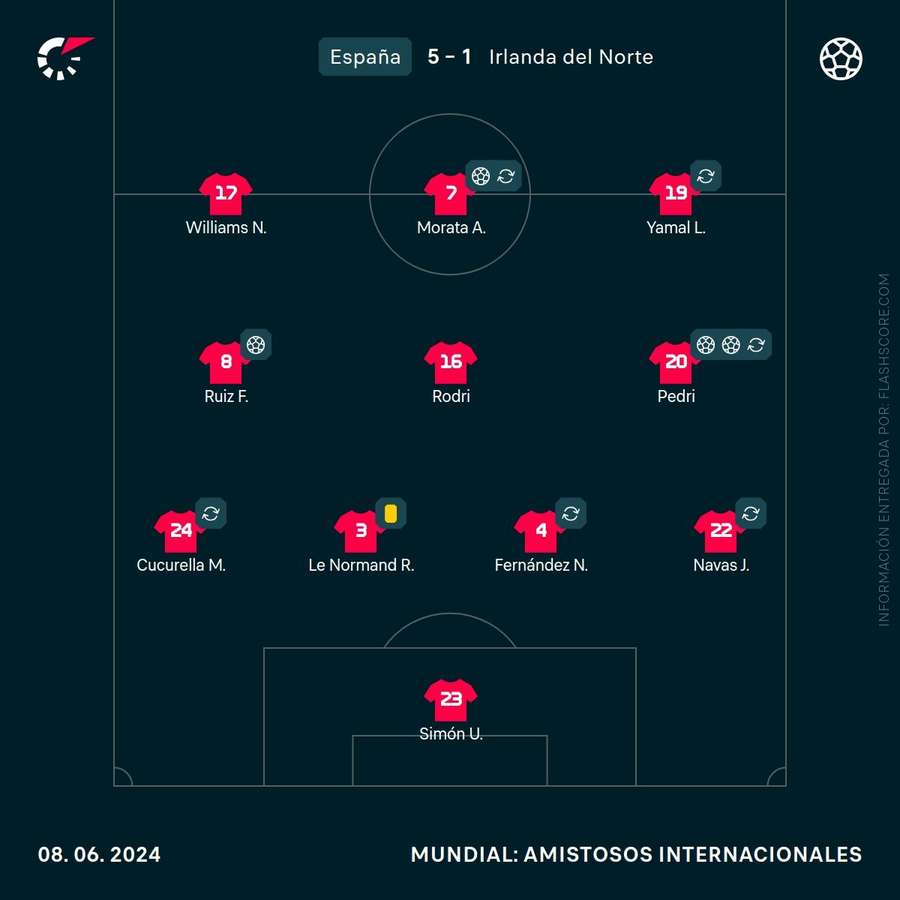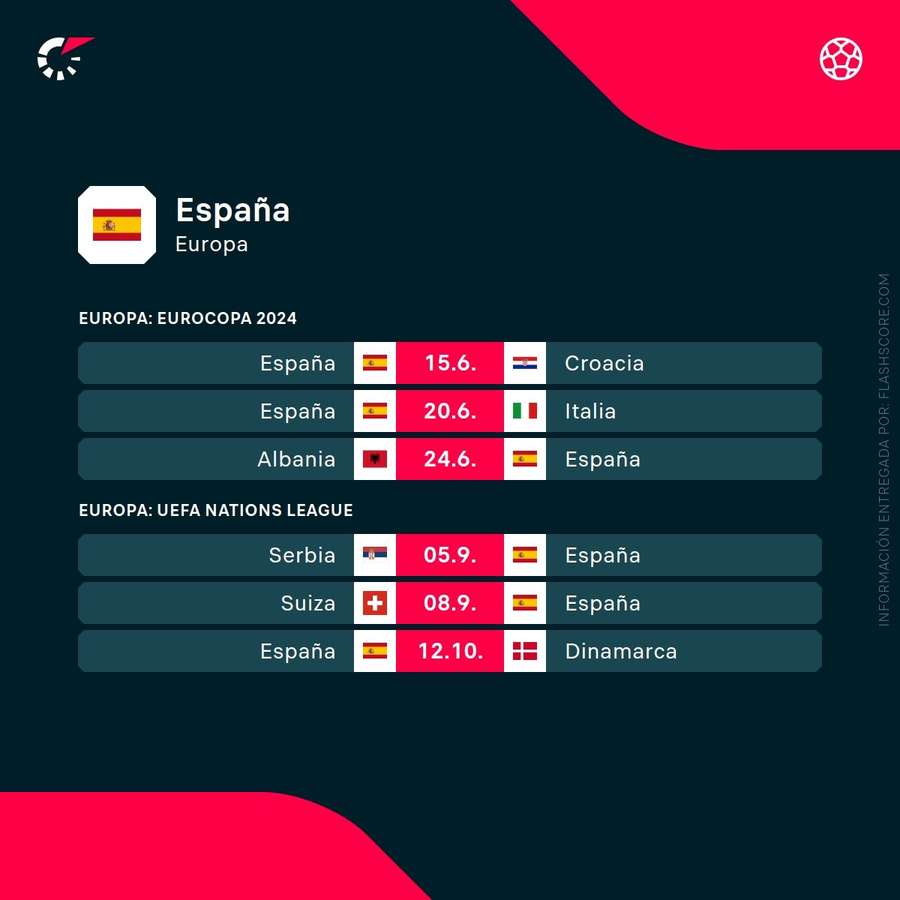EURO 2024 Preview: Wonderkid wingers moving Spain on from tiki-taka

Out with tiki-taka, in with wingers
The instability that has surrounded the Spanish FA in recent months since the Luis Rubiales affair broke out has fortunately not transferred to the field of play.
The round of 16 exit at the World Cup in Qatar meant the end of Luis Enrique's tenure and the promotion of Luis de la Fuente, coach of the U21s, who was given the opportunity of a lifetime. The result was an easy Euros qualification and, in the middle of it, the Nations League title last summer.
Now, in Germany, Spain will try to continue that streak of success with an interesting mix of experience, such as that of 39-year-old Jesus Navas, and youth, such as that of teenager Lamine Yamal (16).
It will not be easy, of course, to stand out in a European Championship when your name is paired with the current champions, Italy; the runners-up of the Nations League and semi-finalists in the last World Cup, Croatia; and with the continental revelation of the last two years, the booming Albania of ex-Barcelona player Sylvinho.
In this group of death, La Roja will have to be bulletproof. Any slip-up - and they are easy to make such a short tournament - can ruin all your chances. That's why that non-negotiable tiki-taka that the nation imposed as a style and that brought them so much success, has had to be updated.
There was no rival who didn't know how to counteract their game of infinite possession, so De la Fuente now intends to get the ball out to the flanks more, with more one-on-ones and more vertical play.
Strengths of the squad
When Spain dominated the world of football, they did so not only because of the eye-catching play of Xavi, Andres Iniesta, David Silva, Xabi Alonso, Cesc Fabregas, David Villa and company. They did it because, in addition to the indisputable technical quality, they always had bodyguards such as Iker Casillas, Sergio Ramos, Carlos Puyol, Gerard Pique and Sergio Busquets in what the late Luis Aragones called his security corridor: a goalkeeper, centre-backs and a pivot.
Of those three positions, we could say that De la Fuente has, at the moment, the best defensive midfielder in the world: Rodri. The Manchester City player is the axis through which the team's balance passes and, incidentally, is a monumental weapon at set pieces. He does everything and does everything well. If only Pedri could get back to his best, to where he was before his multiple injuries...

Having Rodri is their greatest strength on the pitch, along with having two of the biggest talents in Europe. The wingers, as we pointed out above, are vital in generating scoring chances, and they have good ones with Lamine Yamal (Barcelona) and Nico Williams (Athletic) expected to start.
Both will play on the wing, so crosses into the box are not to be expected, but you can expect them to cut inside, to run at the opposition, to get into the box, and watch out if they have space to run because then they will be unstoppable.
Weaknesses of the squad
One of Spain's biggest weaknesses is the goalscoring problem. It always has been. Perhaps because the country's big clubs never use a Spanish centre-forward. Of course, in their defence, it has to be said that when they have had one, the strikers have not taken advantage of the opportunity.
That is the case of the captain, Alvaro Morata. He started the season excellently but has ended up as a substitute again at Atletico Madrid, going on a terrible run that has even led him to be whistled when he has put on the national team's shirt. His understudy will be Real Madrid's Joselu, also a regular on the bench at Real Madrid.
However, the number nine not scoring goals doesn't matter as much as defensive fragility, because other players in the team can score. Defending, however, is another matter.
Since the retirement of Puyol and Pique and the insistence of not counting on Ramos, the axis of the defence has been a huge problem, so much so that two French players, Aymeric Laporte and Ruben Le Normand, were naturalised to lend a hand. But it hasn't worked. Barcelona talent Pau Cubarsi is pushing hard, but giving him the responsibility at 17 years of age when he has only been in senior football for a few months is too much. That's why he has been ruled out of the Olympic Games too and why the coach has recalled Real Madrid captain Nacho.
There is also Vivian, the protege of a De la Fuente, who looks a lot, perhaps too much, at his club performances, because the level that the Athletic player played at when he made his debut, and in the friendly against the weak Andorra, was something to shudder at.
Tactics and formation

The 4-3-3 continues to be the formation most used by the Spanish coach. Of course, it has its nuances - because of the versatility of the central midfielders, it can easily be transformed into a 4-2-3-1.
What is certain is that Unai Simon will continue to be the keeper. He is the one who offers the most security, more than David Raya and Alex Remiro, and the one with the most international experience.
At the back, after the injuries to Alejandro Balde and Jose Gaya, Alejandro Grimaldo's season at Bayer Leverkusen should make him unassailable at left-back. On the right, Dani Carvajal is the first choice, ahead of Jesus Navas. The doubts, due to the aforementioned weaknesses, appear in the centre-back position, with the possibility of Nacho coming in for one of the French players.
In midfield, only Mikel Merino could take Fabian's starting place. And if Pedri does not start, other different but equally compatible options could be Alex Baena or debutant Fermin Lopez. Dani Olmo or Mikel Oyarzabal could also be moved back, although that would only be in case of extreme offensive need.
Up front, Olmo and Oyarzabal could also act as false 9s if Morata does not perform. Ferran Torres, who has always shown a good relationship with the goal, could be a good alternative for any of the three theoretically first-choice strikers.
Spain continue their tradition of not having a big star who can dazzle on his own. It has, for example, no Kylian Mbappe to depend on. The good thing about that is that the strength is in the group, in that if one drops out, the one who replaces him maintains the same level. And in a tournament like this, when the legs at the end of the season are already very heavy, having a deep squad can be, as the rounds progress, a differentiating factor.
Possible starting XI: Simon; Carvajal, Le Normand, Laporte, Grimaldo; Rodri, Pedri, Merino; Yamal, Morata, Nico Williams.

Prediction
It is always difficult to predict what will happen, especially when you are in the group of death. Three teams can go through to the second round, but it's hard to be one of the best third-placed teams when there's so much quality.
In any case, with Italy showing no signs of being at their best and Croatia still depending a lot on what veteran Luka Modric is able to generate from his magician's hat, Spain may have a good chance to make a splash and qualify as winners. Let's not forget Albania, who could give any of the three favourites a scare.
The least that can be asked of Spain is to reach the quarter-finals. Anything less will be a huge disappointment.
